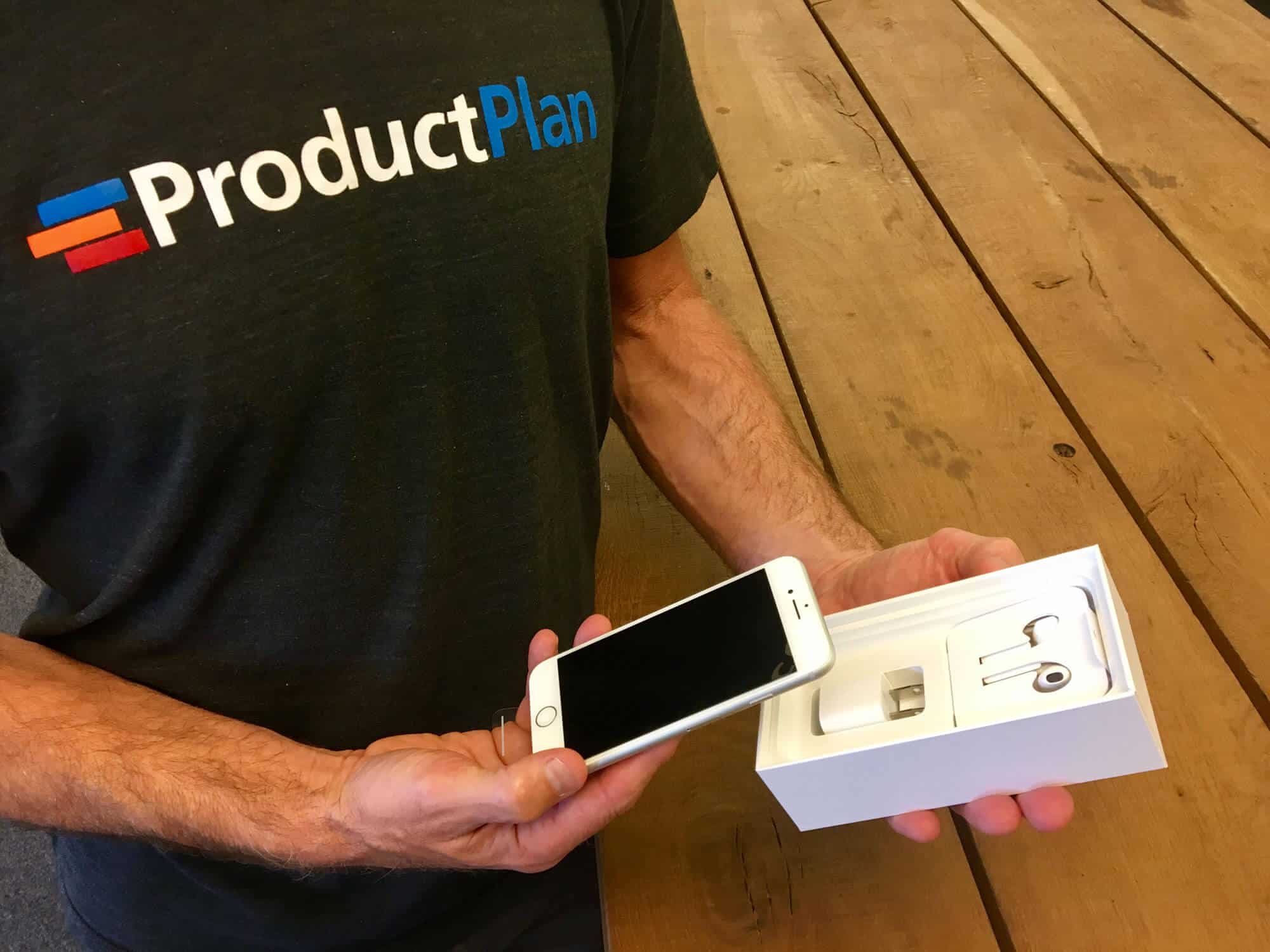Criticism can uncover important truths. This is one reason that product managers have such a difficult job: Sometimes the only way to learn what your users truly think about your product is to launch and then listen to their unvarnished “feedback.”
One valuable truth that criticism can uncover is how much your customers have come to expect and demand from your company and your products. So it says a lot about what an innovative powerhouse Apple has been that the public now expects the company to transform another industry every couple of years, and that we assume every one of its product releases will offer something revolutionary.
Apple has certainly earned that reputation. They changed digital music, with the iPod and iTunes; how we consume video entertainment, with Apple TV; and how and where we interact with the Internet and our digital communities, with the iPad. And of course, with the iPhone, by standing on the shoulders of countless innovations before them, they’ve literally changed the way more than a billion people hold their heads — downward — for much of every day.
The Next Stages of an Innovation
The iPhone was introduced in 2007, the iPad in 2010. Apple TV? That hit the market almost a decade ago, in 2007. And the first iPod was launched way back in 2001.
One major new addition to the Apple product line in recent years, the Apple Watch, wasn’t the first wristwatch to connect via Bluetooth to the owner’s smartphone. Nor was the concept of a piece of wearable, wireless technology so groundbreaking — fitness trackers like Fitbit had already been gaining popularity for years.
So it’s understandable that people are now publicly asking — Why aren’t Apple’s product teams innovating anymore? I believe those criticisms miss part of the story.
Yes, Apple revolutionized several industries — across music, movies and television, web browsing and phone communications. Heck, they even created the concept of an “app store,” where millions of other innovators could sell their own digital tools over web and mobile platforms.
But here’s the real question, a question to which every product manager should give serious thought: When you’ve innovated and brought something truly original and different to the market, what then? What’s your next move? Should you just keep innovating more new products, or should you spend more of your resources and your team’s creative energy improving, tweaking, refining and upgrading that first innovation?
Tweet This:
Should Apple innovate new products, or should they spend time improving existing innovations?
Apple took advantage of a wildly creative period at the company a decade or so ago, and launched a flurry of groundbreaking products. Those products were so groundbreaking, and changed so many people’s lives, that the company has been correct in treating the follow-up stages — nurturing and improving these innovative products — with as much energy and enthusiasm as they gave to the original innovation stage.
The Next Stage in Innovation Isn’t Another Innovation — it’s Nurturing and Improving
So when people criticize Apple for not unveiling more cool, never-before-seen tech year after year, here’s what I think they might be missing.
The very Apple products that have so endeared the company to millions of fans — fans, mind you, not merely customers — require a tremendous amount of ongoing stewardship from Apple’s product teams. The reason the iPhone is still so popular in its seventh iteration, now nearly ten years after its original release, is that the company has put so much thought, analysis and, yes, innovation, into continually improving it.
The seventh version of any product might not sound like it leaves much room for innovation. But consider, for example, the company’s decision to remove the phone jack from the iPhone 7 and introduce a set of wireless headphones. That move was bold and gutsy. And as Apple’s product team no doubt expected, they immediately received serious criticism for it.
In this sense, Apple is damned if they do, damned if they don’t. Many of the people critical of Apple for not releasing more completely new products — in other words, demanding more innovation — are at the same angered at the company’s innovative move to change the way we interact physically with our smartphones. But that’s okay. True innovators understand that it can take time for the public to see the value in their innovations, even if with time everyone claims the ideas made sense all along.
Is Amazon Today a Snapshot of Apple a Decade Ago?
Perhaps another reason so many people have taken issue with Apple for slowing their pace of new product launches is that there are examples all around us of other companies, in their own wildly creative and productive periods, introducing flurries of groundbreaking products right now.
Consider Amazon. The product teams there are on an innovation tear — across product categories, customer personas and industries.
The Echo is already redefining how people interact with the Internet in their homes. The Dash Button is a simple, brilliant solution to a household problem faced by tens of millions of people every day. With Amazon Studios, the company is taking a bold step from another set-top-box provider of TV and movie apps to a content creator in its own right. The company has of course become a major player in the enterprise cloud-computing game, with Amazon Web Services.
And if all of that weren’t enough, there’s the drone delivery project (called Amazon Prime Air). Now if this isn’t innovation, we don’t know what would qualify (whether or not it eventually becomes a reality).
The whole idea is so revolutionary it almost sounds like the punchline to a joke uttered by an obsessed Amazon customer: “I love Amazon, but I hate that it takes a whole day for them to ship me stuff. Why can’t they just have a drone pick up my shipment from the distribution center, fly it to my house and land it on my front porch? Hahaha!”
Of course, maybe the idea actually did originate as a joke like this uttered in a customer’s home… and the Amazon Echo was listening. Just kidding. Probably.
Tweet This:
Is Amazon today a snapshot of Apple a decade ago?
Looking at Amazon’s rapid-paced introduction of new products alongside Apple, what are we to conclude?
Amazon is certainly enjoying a flurry of creativity similar to the one Apple experienced maybe a dozen years ago. If that’s the case, then perhaps as its new products — the Echo, Amazon Prime Air — become ubiquitous and then begin to mature, Amazon will slow down the rush of revolutionary new products out the door (or, in the case of the drones, out the roof). And like Apple, Amazon will begin shifting its focus to refining and improving its existing portfolio of products. We’ll see.
The Best Innovators Care for Their Products Well After the Initial Thrill of the Innovation Wears Off
The initial unveiling of an innovative new product is fun, not only for the public but for the company itself, particularly the product teams responsible for it. That unveiling is what grabs the headlines. It’s what wins new fans.
But even if the new product is an instant hit with the public — in fact, especially if the public takes to it immediately — the company then needs to shift to the next stage, which is learning how to improve upon the product and make it even better. That’s what champion product managers do. Even after an early win in the market with a new product, they head right back to their desk to start gathering new data from users, and whatever else they can find, to start improving the product for the 1.1 release.
Tiger Woods was famously spotted practicing on the driving range just hours after winning the US Open. Real champions in any field, including product management, never stop practicing, never stop learning and never stop improving.
We believe that as Apple slows its pace of unveiling category-defining new products, it’s not because they’re resting on their accomplishments or playing it safe. It’s because they are treating the all-important next steps in product innovation — nurturing and improving — with equal respect.
But that’s just one opinion. Agree? Disagree? Perhaps Apple has slowed its innovation for another reason. And perhaps Amazon’s product teams never will. We want to know what you think about Apple’s slowed pace of innovation. Please share your thoughts in the comments section. Let’s get this product discussion flowing.




